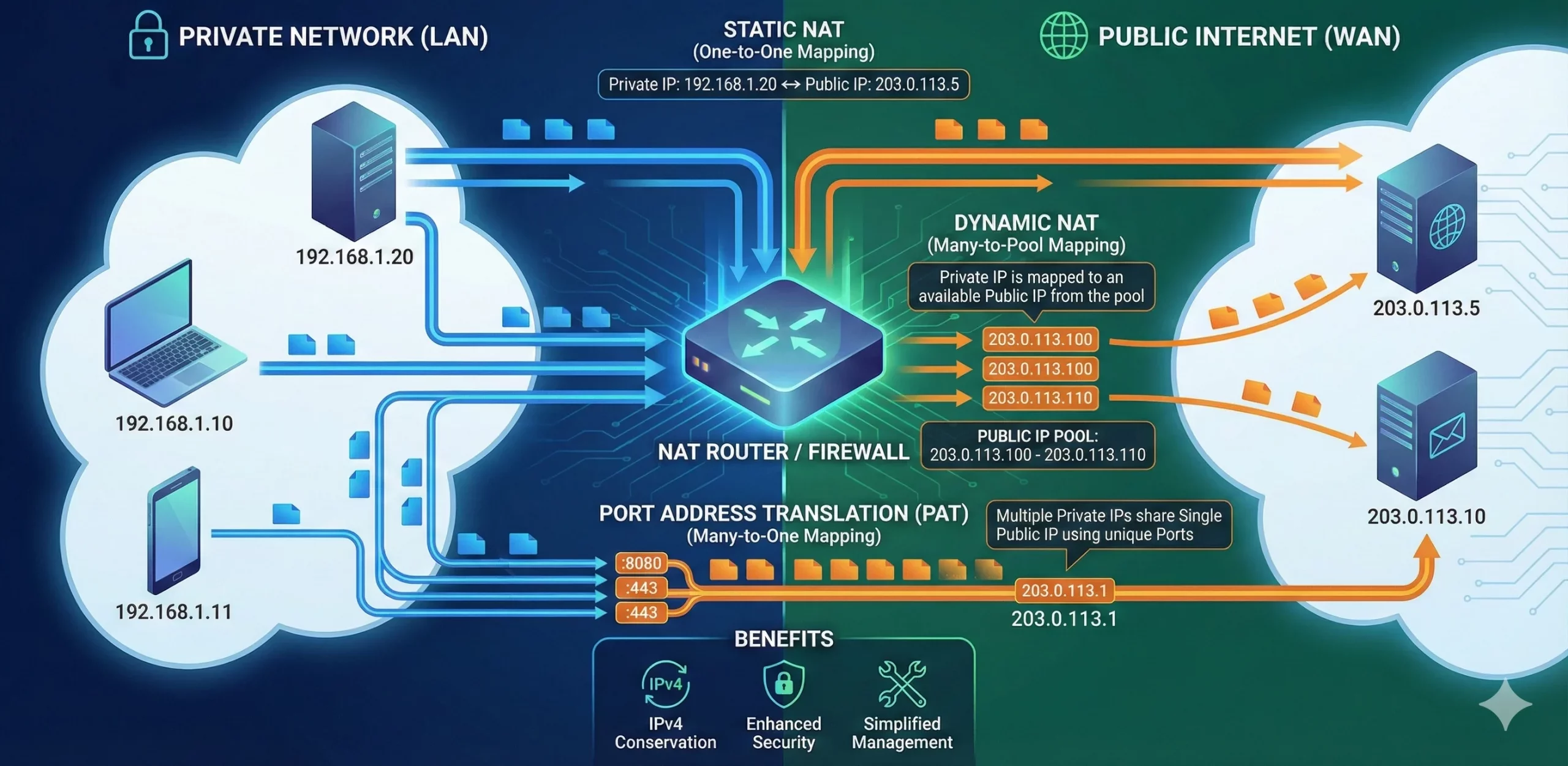The Internet’s Governing Body | Role of ICANN

Understanding ICANN: The Internet's Governing Body
Table of Contents
The Internet Corporation for Assigned Names and Numbers (ICANN) is a digital organization responsible for coordinating and managing the Internet’s unique identifiers, including domain names and IP addresses.
Established in 1998 as a non-profit, ICANN plays a central role in ensuring the stability and security of the Internet by maintaining a globally unified system for naming and numbering protocols that allow Internet users worldwide to connect seamlessly.
ICANN is headquartered in Los Angeles, California, and operates under a multi-stakeholder model. It draws input from governments, private sector entities, technical experts, and civil society to guide its decisions and policy-making.
ICANN’s Role in Domain Names and IP Addresses
ICANN’s main responsibility lies in the management of the Domain Name System (DNS), which translates user-friendly domain names, like “example.com,” into IP addresses that computers use to communicate. By overseeing the distribution of top-level domains (TLDs) such as .com, .org, and .net, as well as country-code top-level domains (ccTLDs) like.us and. uk, ICANN ensures a standardized structure for web addresses globally.
ICANN also collaborates with regional internet registries (RIRs) to allocate IP address blocks to regions and providers, maintaining a structured and secure system that supports the internet’s connectivity.
Impact on Global Internet Governance
ICANN’s governance extends beyond technical management, impacting privacy, cybersecurity, and freedom of information worldwide. ICANN’s policies, such as those around the WHOIS database—which stores the contact information of domain owners—affect how domain ownership data is managed and accessed. The organization’s multi-stakeholder model empowers a diverse group of contributors to shape these policies, impacting how countries, businesses, and individuals use the Internet.
How ICANN Impacts Users and the Future of the Internet
The decisions ICANN makes have real-world implications for the security, accessibility, and growth of the Internet. For instance, its initiatives to enhance DNS security protocols, like DNSSEC (Domain Name System Security Extensions), help protect against threats such as phishing and DNS spoofing. As the demand for Internet resources grows with increased global connectivity, ICANN’s role is increasingly important to manage resources efficiently and foster a stable digital ecosystem.
Why ICANN Matters
For businesses, ICANN’s management of domains and IP addresses supports reliable and accessible web presence. For everyday users, ICANN’s commitment to open, secure internet access maintains a level of trust and consistency online. Looking forward, ICANN’s role in developing new policies, handling security challenges, and expanding domain options means it will remain pivotal in shaping the internet’s future.
ICANN stands as a critical force in Internet governance, balancing the technical and regulatory needs of a global online community and ensuring that the Internet remains an open and inclusive space for all.
Trusted IPv4 Leasing for Business Growth
Get enterprise-grade IPv4 space quickly, with seamless deployment and end-to-end management.
Get Started with i.leaseRelated Posts

Common Myths About Selling IP Addresses
The IPv4 secondary market is often shrouded in mystery, leading many organizations to sit on valuable digital assets because they fear the perceived complexity or legal “gray areas.” As IPv4 exhaustion becomes a permanent reality, the value of these addresses has skyrocketed, yet misconceptions continue to stall potential transactions. At i.lease, powered by the real-world expertise of LARUS, we’ve seen how these myths prevent companies from unlocking significant capital.Read more Related Posts Common Myths About Selling IP Addresses The IPv4 secondary market is often shrouded in mystery, leading many organizations to sit on valuable digital assets because they Read more How to buy IPv4 addresses through a certified IP broker Buying IPv4 space requires policy compliance, verified need, and registry approval, making certified IP brokers essential guides through complex global Read more What happens when IP resources are mismanaged Poor IP resource management can lead to outages, security breaches, blacklisting, legal exposure and reputational damage across networks and business Read more .related-post {} .related-post .post-list { text-align: left; } .related-post .post-list .item { margin: 5px; padding: 10px; } .related-post .headline { font-size: 18px !important; color: #999999 !important; } .related-post .post-list .item .post_thumb { max-height: 220px; margin: 10px 0px; padding: 0px; display: block; } .related-post .post-list .item .post_title { font-size: 16px; color: #3f3f3f; margin: 10px 0px; padding: 0px; display: block; text-decoration: none; } .related-post .post-list .item .post_excerpt { font-size: 13px; color: #3f3f3f; margin: 10px 0px; padding: 0px; display: block; text-decoration: none; } @media only screen and (min-width: 1024px) { .related-post .post-list .item { width: 30%; } } @media only screen and (min-width: 768px) and (max-width: 1023px) { .related-post .post-list .item { width: 90%; } } @media only screen and (min-width: 0px) and (max-width: 767px) { .related-post .post-list .item { width: 90%; } }

How to buy IPv4 addresses through a certified IP broker
Buying IPv4 space requires policy compliance, verified need, and registry approval, making certified IP brokers essential guides through complex global transfers. IPv4 transactions are regulated transfers, not simple purchases — registries must approve documentation, justification and registration changes. Certified brokers reduce risk and delay by aligning buyers with registry policy, routing legitimacy and cross-region requirements. Why companies still need to buy IPv4 addresses The global supply of IPv4 addressesRead more Related Posts Common Myths About Selling IP Addresses The IPv4 secondary market is often shrouded in mystery, leading many organizations to sit on valuable digital assets because they Read more How to buy IPv4 addresses through a certified IP broker Buying IPv4 space requires policy compliance, verified need, and registry approval, making certified IP brokers essential guides through complex global Read more What happens when IP resources are mismanaged Poor IP resource management can lead to outages, security breaches, blacklisting, legal exposure and reputational damage across networks and business Read more .related-post {} .related-post .post-list { text-align: left; } .related-post .post-list .item { margin: 5px; padding: 10px; } .related-post .headline { font-size: 18px !important; color: #999999 !important; } .related-post .post-list .item .post_thumb { max-height: 220px; margin: 10px 0px; padding: 0px; display: block; } .related-post .post-list .item .post_title { font-size: 16px; color: #3f3f3f; margin: 10px 0px; padding: 0px; display: block; text-decoration: none; } .related-post .post-list .item .post_excerpt { font-size: 13px; color: #3f3f3f; margin: 10px 0px; padding: 0px; display: block; text-decoration: none; } @media only screen and (min-width: 1024px) { .related-post .post-list .item { width: 30%; } } @media only screen and (min-width: 768px) and (max-width: 1023px) { .related-post .post-list .item { width: 90%; } } @media only screen and (min-width: 0px) and (max-width: 767px) { .related-post .post-list .item { width: 90%; } }

How to turn idle IPv4 addresses into a recurring revenue stream with iLease
Unlock the hidden value of unused IPv4 addresses with iLease, turning dormant digital infrastructure into a recurring revenue stream while navigating market demand, compliance and risk. Leasing idle IPv4 blocks can generate steady, long-term income without relinquishing ownership. Platforms like i.lease global IPv4 marketplace make it easier to monetise addresses and manage reputation and compliance. why IPv4 addresses still matter Despite the long-anticipated exhaustion of the IPv4 address space — aRead more Related Posts Common Myths About Selling IP Addresses The IPv4 secondary market is often shrouded in mystery, leading many organizations to sit on valuable digital assets because they Read more How to buy IPv4 addresses through a certified IP broker Buying IPv4 space requires policy compliance, verified need, and registry approval, making certified IP brokers essential guides through complex global Read more What happens when IP resources are mismanaged Poor IP resource management can lead to outages, security breaches, blacklisting, legal exposure and reputational damage across networks and business Read more .related-post {} .related-post .post-list { text-align: left; } .related-post .post-list .item { margin: 5px; padding: 10px; } .related-post .headline { font-size: 18px !important; color: #999999 !important; } .related-post .post-list .item .post_thumb { max-height: 220px; margin: 10px 0px; padding: 0px; display: block; } .related-post .post-list .item .post_title { font-size: 16px; color: #3f3f3f; margin: 10px 0px; padding: 0px; display: block; text-decoration: none; } .related-post .post-list .item .post_excerpt { font-size: 13px; color: #3f3f3f; margin: 10px 0px; padding: 0px; display: block; text-decoration: none; } @media only screen and (min-width: 1024px) { .related-post .post-list .item { width: 30%; } } @media only screen and (min-width: 768px) and (max-width: 1023px) { .related-post .post-list .item { width: 90%; } } @media only screen and (min-width: 0px) and (max-width: 767px) { .related-post .post-list .item { width: 90%; } }